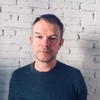Advertisement
Advertisement
Some students rolling around on the floor. None of this people are on drugs, it's just a photo to illustrate "students." Photo by Jake Lewis
Advertisement
Again, just students being students, not students doing drugs. Photo by Jamie Lee Curtis Taete
Advertisement
Advertisement
This is maybe/probably what your kitchen table looked like during uni. Photo by Jake Lewis
